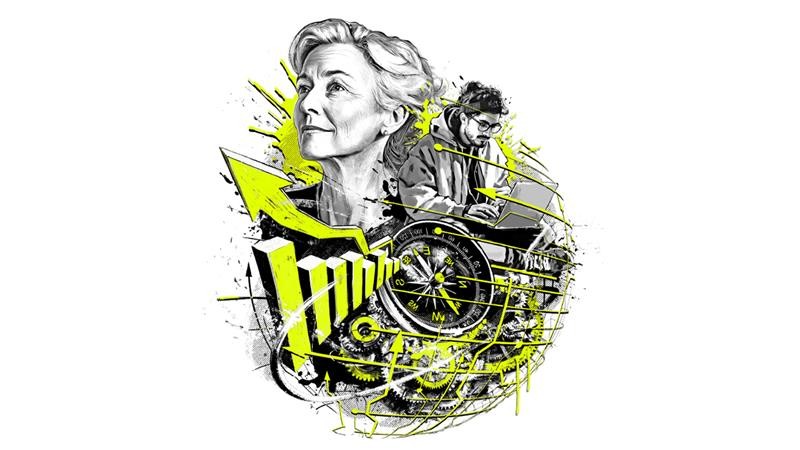Research - 20.10.2025 - 10:00
Swiss retirement provision is at a turning point. While the state is struggling to finance the AHV, pension funds are battling with pressure on returns and high administrative costs. Against this backdrop, Prof. Dr. Martin Eling at the Institute of Insurance Economics (IVW-HSG) at the University of St.Gallen (HSG) was commissioned by PensExpert to investigate how artificial intelligence (AI) can help to overcome these challenges. Under the title "Effects of Artificial Intelligence on Retirement Provision," the researchers identified seven key areas for action – from consulting and automation to financial education.
The problems are well known: the ratio of working people to pensioners is shifting, pay-as-you-go systems are coming under financial pressure, and at the same time, confidence in long-term investment products is declining. Added to this are confusing pension landscapes, complex regulations, and a population that is not only aging but also becoming more digital.
"Our retirement provisions are based on models from the 20th century, while we have long since entered the digital age," says Martin Eling. AI could become a "decisive lever" here – provided it is used correctly.
According to the HSG study, AI opens up seven specific areas of opportunity for pensions:
Experts have particularly high confidence in efficiency gains and educational initiatives: almost 80 % of respondents from the pension fund industry consider significant productivity gains to be "very likely."
"AI will change retirement provision faster than any regulation," warns Eling. "Those who seize its opportunities can massively reduce costs and give millions of people good access to retirement provision – those who ignore it risk being left behind."
This assessment is shared by Jörg Odermatt, Chairman of the Board of Directors of PensExpert, which commissioned the study: "AI can be a real opportunity: thanks to the clever use of AI, the majority of Swiss second and third pillar pension funds can significantly optimize their administrative processes and also improve the level of education of their insured members." One thing is undisputed: "Insured members expect an AI-based education and information platform to deliver the highest quality, absolute data protection, and complete transparency."
Eling emphasizes that the success of AI in pension provision depends on the trust of the insured: "Without data protection, traceability, and ethical standards, AI becomes a risk rather than a solution." The researchers therefore call for three concrete steps:
A recent analysis by economiesuisse also shows that AI has enormous economic potential: if Switzerland were to make widespread use of AI, gross domestic product could grow by several percentage points by 2030. However, the association warns that the technology must be introduced responsibly – especially in sensitive areas such as finance and health.
The Handelszeitung newspaper makes a similar argument in a recent article entitled "Artificial intelligence meets retirement provision." The article emphasizes that although many Swiss pension funds have enormous amounts of data at their disposal, they make little use of it. AI-supported analyses could help improve return and risk decisions – provided that the algorithms remain transparent.
Institutional Money also points out that digital transformation is sweeping across the entire pension industry. AI applications could lead to a new generation of data-based pension solutions – with a focus on prevention and individual planning rather than blanket standard models.
Overall, the HSG study paints a picture of "cautious optimism." AI could make retirement provision more efficient, flexible, and fair – provided that politicians, providers, and society create the right framework conditions.
"Technological innovation, regulatory clarity, and social responsibility must go hand in hand," Eling summarizes. "Then AI can become a sustainable pillar of modern retirement provision."
But he warns: "There is a great temptation to rely on technology. But AI does not replace common sense – it needs it more than ever."
More articles from the same category
This could also be of interest to you
Discover our special topics
